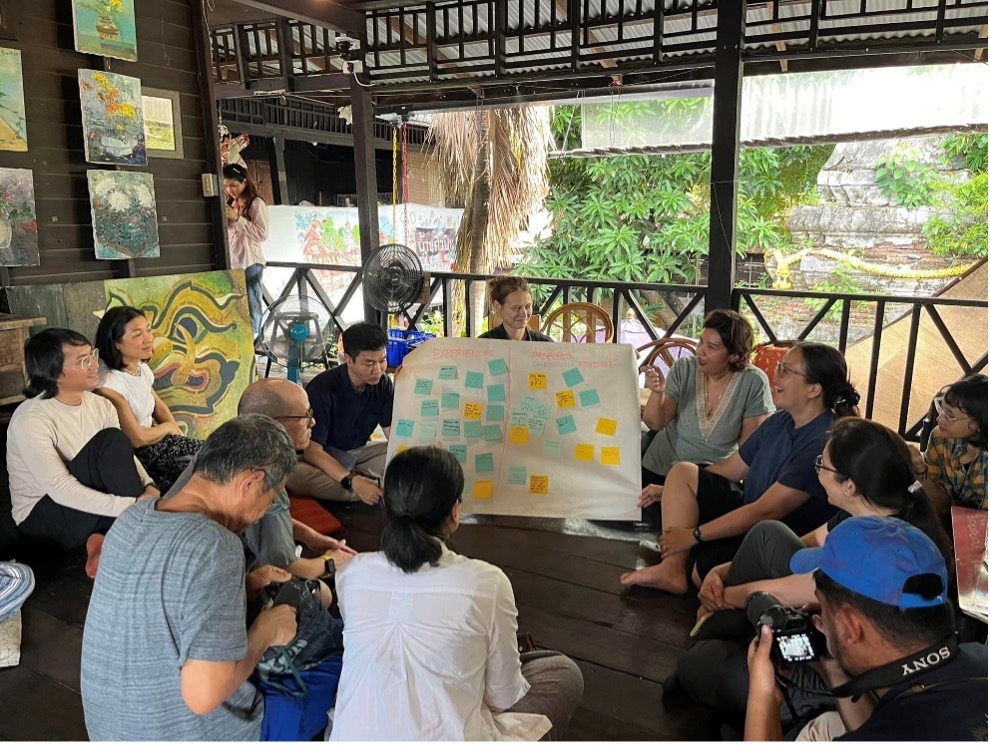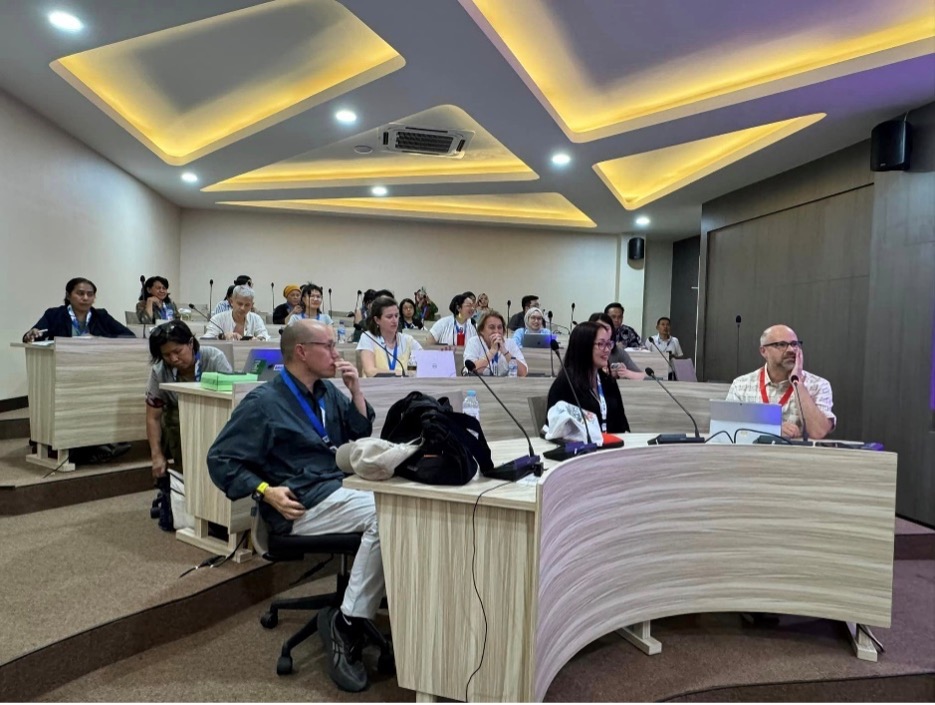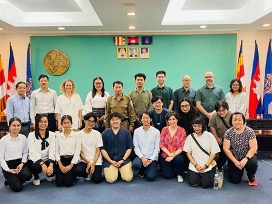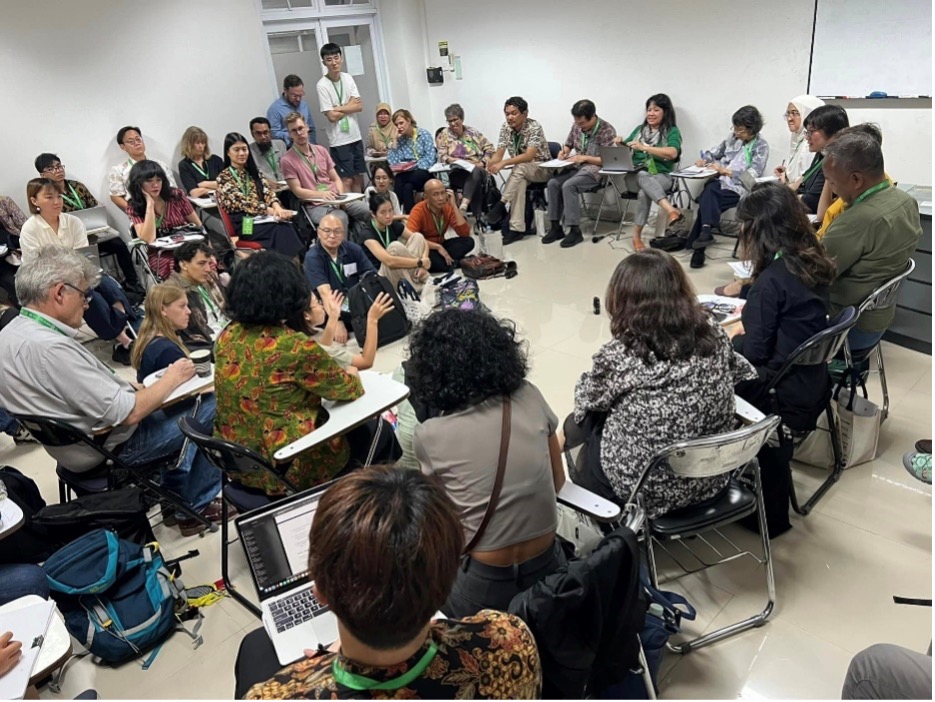The Southeast Asia Neighbourhoods Network (SEANNET): IIAS-SEA Connections
Rita Padawangi
Coordinator, Southeast Asia Neighbourhoods Network (SEANNET)
Associate Professor, College of Interdisciplinary & Experiential Learning, Singapore University of Social Sciences.

Photo 1: SEANNET workshop in Songgoriti, Batu, Indonesia, February 2023 (Photo source: Rita Padawangi, 2023).
The International Institute for Asian Studies (IIAS) is a pivotal knowledge-building space for scholars around the world, from historical to contemporary issues and connections in-between. As an urban studies scholar from Asia, I have heard about IIAS as a go-to place for researchers since my early days as a graduate student, but my own interaction with the institute intensified since the establishment of the Urban Knowledge Network Asia (UKNA). UKNA is one of the significant IIAS-founded knowledge networks that has grown into an organic community who are committed to connect rigorous scholarships with broader societal issues of the world. Urbanisation is a worldwide trend, and Asia is the place where urban development is intense, diverse, and has brought a spectrum of social, economic, and cultural shifts. Over the past decade, IIAS cities cluster has grown to be an important node of city-building knowledge of Asia for the world. In my own personal career trajectory, IIAS has been a source of inspiration as it provides a space of connections, transdisciplinary sharing of concerns, and stimulation of thoughts. IIAS approach to provide scholars from various disciplines spaces for exchanging ideas and for building collaborations to contribute to societies is much needed in an increasingly exciting but also challenging world.

Photo 2: SEANNET workshop at Artist’s House, Klong Bang Luang, Thonburi, Bangkok, 2 July 2024 (Photo Source: SEANNET Bangkok, 2024).

Photo 3: SEANNET x RCN Roundtable on Rethinking Community-engaged Approaches at ICAS, 29 July 2024 (Photo Source: Lyno Vuth, 2024).
It is also through IIAS that the Southeast Asia Neighborhoods Network (SEANNET) has grown, along with several other milestone initiatives in urban studies such as the Asian Cities book series with the Amsterdam University Press and the River Cities Network (RCN). SEANNET was born from discussions among scholars that were connected through UKNA to become a collaborative network to break boundaries among academia, local communities, action and policy-making. Inspired by IIAS viewpoint of Asia in the world, SEANNET addresses the dearth of Southeast Asia perspectives in urban studies through commitment to connect research, pedagogy, and practice of city knowledge-building from Southeast Asia. IIAS catalysed SEANNET to obtain the grant from the Henry Luce Foundation in the United States for the network’s first four years, and SEANNET coordination eventually shifted to Southeast Asia when the Singapore University of Social Sciences (SUSS) obtained a larger grant from the Foundation to intensify and to expand the network.

Photo 4: SEANNET meeting with Minister of Higher Education, Science and Culture, José Honório da Costa Pereira Jerónimo, 24 June 2024 (Photo Source: INCT, 2024).

Photo 5: SEANNET workshop in Phnom Penh: Meeting at City Hall, 6 July 2024 (Photo Source: SEANNET Phnom Penh, 2024).

Photo 6: Roundtable Discussion “(Re-)Positioning Kampung in the City: From Conceptual Inquiry to Practices of Commoning (Part 1)” at AAS-in-Asia in Yogyakarta, 9 July 2024 (Photo Source: Rita Padawangi, 2024).
From a network of six research teams, SEANNET has grown into a network of more than 20 institutions around the world and continues to grow. IIAS continues to be a strategic partner of SEANNET, enabling connections with various networks at the institute such as the Humanities across Borders (HaB) and Africa-Asia, and SEANNET played a role in establishing new IIAS collaborations such as the Southeast Asia-Africa (SEA-A) initiative. From the initial group brought together by IIAS through shared concerns in the region’s urban studies, SEANNET now connects people around the globe to engage with vantage points of Southeast Asia not only in understanding, conceptualising, and theorising the city and urbanisation, but also in connecting those scholarships to inform local communities, practitioners, and institutions to address contradictions of urban development.
Rita Padawangi
ritapadawangi@suss.edu.sg
Singapore, 16 March 2025